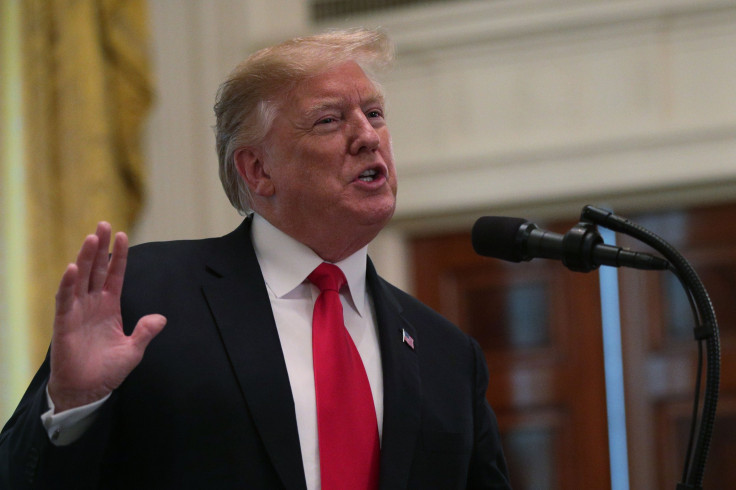2020 Election Looking Good For Trump As Poll Voters Think Economy Is Better

Despite the optimism of Democrats on the 2020 polls, President Donald Trump has a huge advantage. It is the feel-good factor of the American economy.
According to reports, this plus point can work in Trump’s favor when he makes the re-election bid in 2020. Details of what Americans feel about the economy were revealed in a CNN poll.
The survey said 71 percent of Americans believe that the economy is good. Only 27 percent think it is not healthy and in poor condition.
The last time such a positive view on the economy emerged in 2001 that too in a CNN poll.
It is logical that people’s happiness about the economy may make Trump’s electoral journey glitch-free and make him win the mandate again.
Trump’s problems include poor approval rating in several electoral states. Now the vibes of a strong U.S. economy can turn such alienating factors into admiration.
Satisfactory growth of the economy
The gross domestic product of the U.S. has made a healthy growth. This is despite the poor job creation data in February. Wages are also growing.
Many recent polls expressed optimism about the economy’s resilience.
In a poll held in February, 53 percent Americans said they do not see a recession in the next 12 months. Only 33 percent believed the economy would shrink, noted an NBC News poll.
Trump has been claiming that the high point of his policy success was the shaping of a strong economy.
US economy is anti-poor, says JP Morgan boss
Meanwhile, JPMorgan Chase CEO Jamie Dimon called the U.S economy “anti-poor.”
“If you live in certain parts of town, if you're white or Hispanic or black, you can pretty much be left behind,” Dimon told CNN's Boss Files interview.
JPMorgan (JPM) has initiated a program to train workers for future jobs. The program carries a corpus of $350 million.
The bulk of it goes in helping low-income Americans including those stigmatized by criminal records. They live as untouchables in the job market. This social boycott makes them frequent jailbirds.
“Kids aren't getting the education they need to get a job,” Dimon said.
Dimon called for delinking jobs from four-year college degrees and said those who graduate from community colleges or receive other modes of training need a fair consideration. The CEO noted that many positions do not require a formal college degree.
The CEO said JPM has removed college graduation requirements for many of its jobs. As a result, 75 percent of the U.S. positions posted in 2018 does not call for a college degree.
Dimon also urged more job opportunities for convicts who served their time in jail.
“A lot of those people probably never should've have been felons, or they've paid their price,” he said.
Noting that regulations are hard for financial services companies to hire ex-convicts, Dimon said JM’s efforts are not a philanthropic exercise. Rather, they are aimed at boosting the economy.
Dimon pointed out that job training programs can make ex-convicts positive, happier and productive.
© Copyright IBTimes 2025. All rights reserved.





















